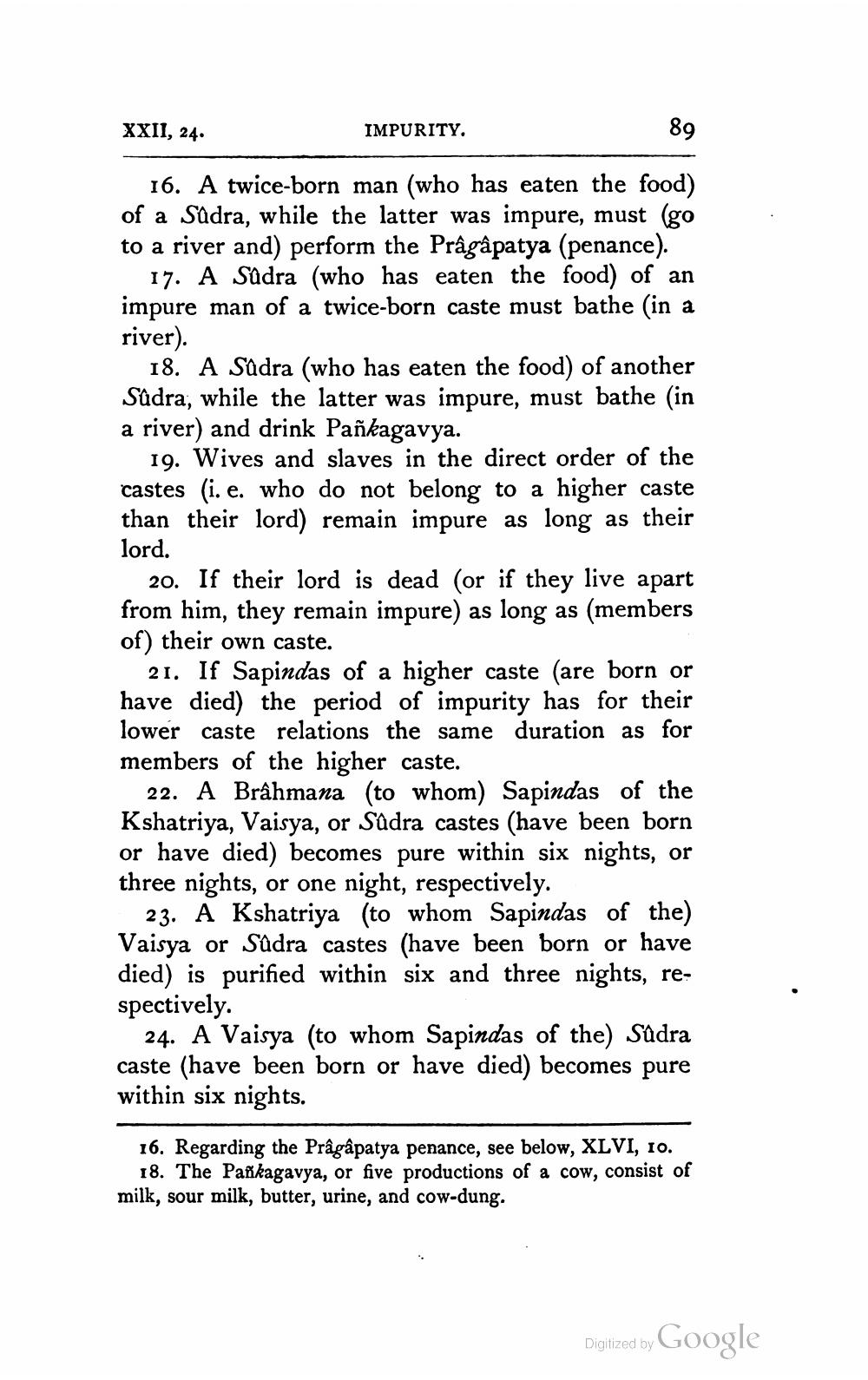________________
XXII, 24.
IMPURITY.
16. A twice-born man (who has eaten the food) of a Sudra, while the latter was impure, must (go to a river and) perform the Prâgâpatya (penance).
17. A Sudra (who has eaten the food) of an impure man of a twice-born caste must bathe in a river).
18. A Sadra (who has eaten the food) of another Sadra, while the latter was impure, must bathe (in a river) and drink Pañkagavya.
19. Wives and slaves in the direct order of the castes (i. e. who do not belong to a higher caste than their lord) remain impure as long as their lord.
20. If their lord is dead (or if they live apart from him, they remain impure) as long as (members of) their own caste.
21. If Sapindas of a higher caste (are born or have died) the period of impurity has for their lower caste relations the same duration as for members of the higher caste.
22. A Brâhmana (to whom) Sapindas of the Kshatriya, Vaisya, or Sudra castes (have been born or have died) becomes pure within six nights, or three nights, or one night, respectively.
23. A Kshatriya (to whom Sapindas of the) Vaisya or Sudra castes (have been born or have died) is purified within six and three nights, respectively.
24. A Vaisya (to whom Sapindas of the) Sudra caste (have been born or have died) becomes pure within six nights.
16. Regarding the Prâgâpatya penance, see below, XLVI, 10.
18. The Parkagavya, or five productions of a cow, consist of milk, sour milk, butter, urine, and cow-dung.
Digitized by
Digitized by Google




